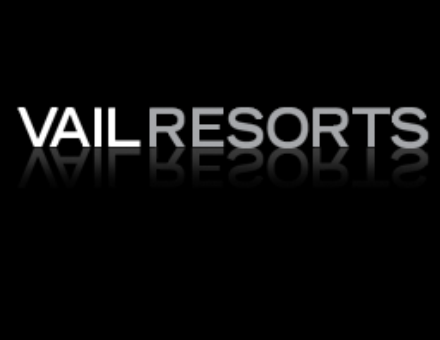SAM Magazine—Broomfield, Colo., June 16, 2022—Vail Resorts (VR) is up 32 percent in net revenue and 9 percent in early season pass unit sales as compared to last year, according to its fiscal 2022 third-quarter report (period ending April 30, 2022).  The growth comes on the heels of a turbulent winter for the company, which reckoned with weather, staffing, and density challenges across its portfolio.
The growth comes on the heels of a turbulent winter for the company, which reckoned with weather, staffing, and density challenges across its portfolio.
VR CEO Kristen Lynch primarily credits loosened Covid restrictions and limitations, as well as “a strong finish to the season,” particularly at its Colorado and Utah resorts and Whistler Blackcomb, B.C., for the gains.
Advance commitment remains the core of VR’s business strategy, and the company has seen a steady increase in the number of visitors using a pass product. Lynch said roughly 72 percent of all 2021-22 skier visits to the company’s North American resorts came on a pass product (excluding employee and complimentary visitation), compared to about 60 percent and 51 percent for the 2018-19 and 2014-15 North American ski seasons, respectively.
Revenue (and Expense) Increases
VR’s total net revenue increased $287.6 million, or 32.3 percent, compared to last year. Ancillary revenues also rebounded year over year.
Ancillary revenue. Ski school revenue was up 50.4 percent, dining revenue increased 73.6 percent, and retail/rental revenue was up 38.6 percent—each primarily due to fewer Covid-19 related limitations and restrictions compared to the prior year, as well as an increase in demand, according to the report.
However, noted Lynch, “Throughout the season, our ancillary businesses continued to be capacity constrained by staffing, and in the case of dining, by operational restrictions associated with Covid-19.”
Operating expenses were up 30.7 percent due in part to the impact of cost discipline efforts in the prior year associated with reduced levels of operations related largely to Covid-19 restrictions and closures.
Lodging saw gains as well. Across the industry, average daily rate (ADR) has climbed exponentially. That, combined with an increase in demand as well as fewer Covid-19 related limitations, saw VR’s lodging segment net revenue (excluding payroll cost reimbursements) increase $30.8 million, or 54.6 percent, year over year.
Total lift revenue for the company increased $137 million, or 23.7 percent over the prior year period, which was credited primarily to increased pass product sales, as well as an increase in non-pass lift ticket purchases.
Pass Sales
While this year’s 9 percent growth in pass unit sales through May 31, 2022, is modest compared to last year’s 50 percent increase in unit sales through June 1, 2021—the result of a 20 percent drop in pass pricing for 2021-22—Lynch said the company was, nonetheless, “very pleased with the results.”
The unit growth resulted in an 11 percent increase in sales dollars compared to the same period last year. VR increased season pass prices by 7.5 percent for 2022-23.
Destination vs. local. Relative to the prior year period, Lynch said the company has seen strong unit growth with its renewing passholders, particularly in VR’s destination markets, while unit sales have been “more moderate” across local markets where pass penetration is already higher.
Epic Day Pass products are apparently driving the company’s strongest product growth following the launch of a new tier of regional and local Epic Day products for 2022-23.
Lower growth rate. Looking ahead, Lynch predicted that the full-year unit and sales growth rate will be lower than the spring growth rate.
Additional Insights
The report offered several additional insights into VR’s 2021-22 season and its investment and growth plans going forward.
Maximum capacity? Despite the growth in overall visits this past season—and the extensive news coverage of crowding at VR properties—"very few of our resorts even approached their historical maximum daily visitation, as our resorts averaged only one day this season exceeding 95 percent of their historical peak daily visitation and only six resorts had more than one day above that level, excluding the recently acquired Seven Springs Resorts,” said Lynch. All of this, she added, suggested that there is a “considerable opportunity to continue to grow the overall industry and skier visits outside of peak periods.”
Off-peak visitation growth. VR has identified a continuing trend toward off-peak visitation growth. Compared to 2018-19, visitation on weekday and non-holiday periods for 2021-22 increased approximately 8 percent, while visitation on weekend and holiday periods decreased approximately 3 percent. Peak Resorts visitation is excluded in both periods in this comparison (VR had not yet acquired Peak Resorts in fiscal year 2019.).
New capital projects. And finally, in addition to confirming its 2022 capital investments, which includes the installation of 21 new or replacement lifts across 14 of VR’s resorts, VR also shared the first projects in its 2023 capital plans:
The Peak 8 base at Breckenridge, Colo., will get an upgrade to enhance the beginner area and increase uphill capacity; the investment plan includes a new four-person high speed 5-Chair to replace the existing two-person fixed-grip lift, new teaching terrain, and a transport carpet from the base.
The two-person fixed-grip Kehr's Chair lift at Stevens Pass, Wash., will be replaced with a new four-person lift, which will improve out-of-base capacity.
Additionally, at Attitash, N.H., VR plans to replace the three-person fixed-grip Summit Triple lift with a new four-person high speed lift.
The lift projects are all subject to regulatory approvals and are currently expected to be completed in time for the 2023-24 winter season.




